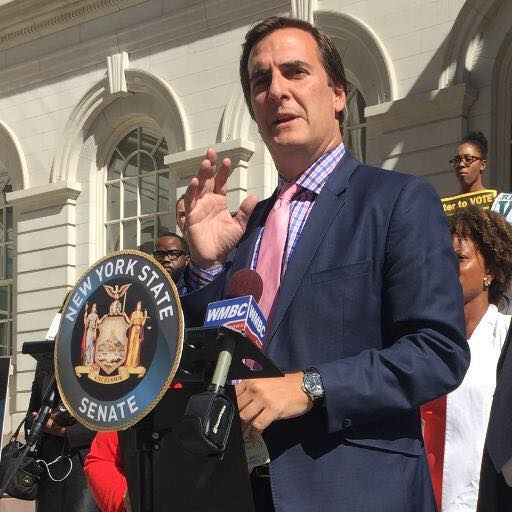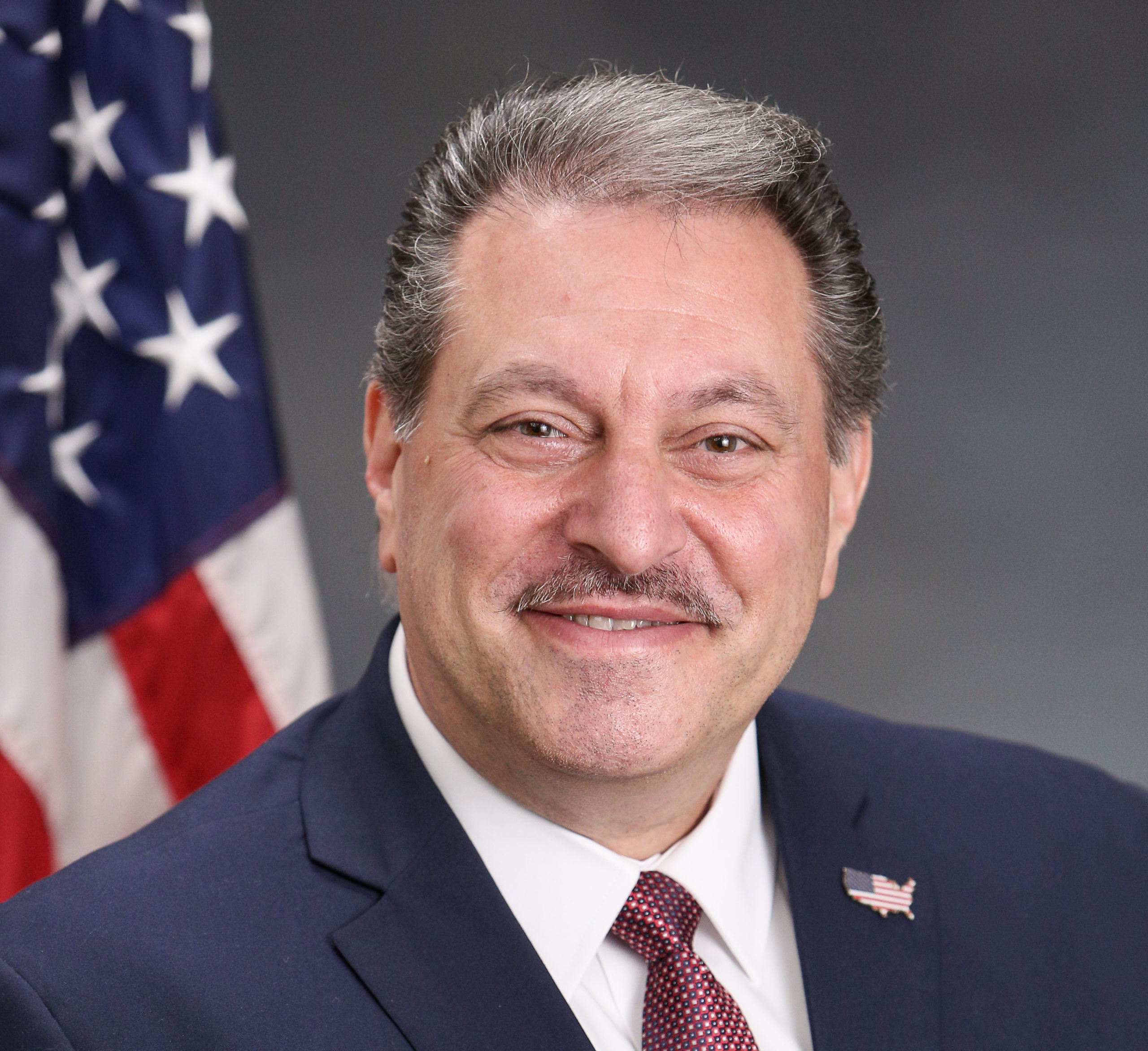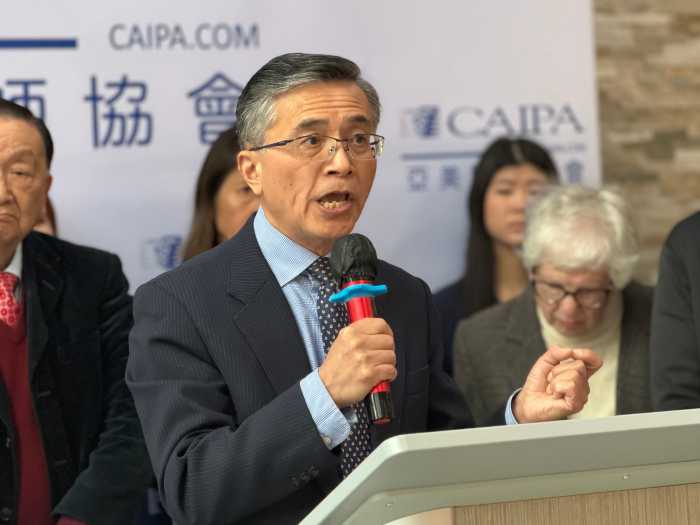Gillibrand Calls On Congress To Restrict Some Funding For Border Immigration Crisis

U.S. Senator Kirsten Gillibrand (D-NY) yesterday announced that she is calling on Senate Appropriators to restrict federal funding for government facilities housing unaccompanied migrant children that do not meet minimum standards of care meant to protect children.
This comes as the Trump Administration requests emergency supplemental funding for the Office of Refugee Resettlement (ORR) Unaccompanied Alien Children Program, which oversees facilities housing unaccompanied migrant children.
However, with report after report detailing the mistreatment of migrant children in detention and other ORR housing facilities, and the continued waivers being granted to contractors to house these children, Gillibrand urged Senate appropriators to restrict funding from facilities that are not licensed by the state to care for children or that do not meet the minimum federal standards of care as prescribed by the Flores Agreement.
Additionally, Gillibrand is also calling for appropriators to restrict any funding that may be used to implement the Memorandum of Agreement (MOA) between Immigration and Customs Enforcement (ICE), Customs and Border Patrol (CBP), and ORR, in which information obtained from children, such as citizenship status of potential sponsors, is shared between these agencies. This would help reduce the manufactured over-capacity problem that the Trump Administration cites as the need for unlicensed facilities.
“It is reprehensible that the facilities tasked with housing unaccompanied children are not subject to minimum standards of care, leaving children vulnerable to potential mistreatment. Far too many reports have surfaced of children being abused, and in some instances dying, while under ORR care. Despite a record amount of children being held in government custody, the Trump Administration has implemented policies that keep children in these facilities for longer than necessary, rather than ensuring they are placed in safe homes right away,” said Gillibrand.
Kim Votes No On SHSAT Bill

Assemblymember Ron Kim (D-Whitestone, Flushing, College Point, Murray Hill), the first and only Asian American to serve on the Assembly Education Committee, yesterday voted “No” on bill A.2173, which if passed would discontinue the Specialized High School Admission Test (SHSAT) to get into the city’s elite specialized academic high schools.
“The Mayor and Chancellor Carranza have been pushing for racially divisive legislation that would punish an entire group of immigrants, predominantly low-income Asian Americans, to give the impression that they are de-segregating our schools. For two years in a row now, I voted against this measure to refocus our attention on providing real solutions, so that every child has access to quality schools. Whether you are a good test taker, a good chess player, a good writer, or a good athlete, every child deserves to attend a good high school,” said Kim.
“This is a win-lose policy that does not increase seats for specialized high schools, and may not even result in increasing diversity. There is no school-by-school racial data that proves advancing the top 7% of each middle school will result in more diversity in specialized high schools, because our city’s population itself is segregated by race. Furthermore, A.2173 would only help public middle school students gain access to specialized high schools, but prevent 250,000 students who attend parochial, Catholic, Muslim, Jewish, and other private schools from having the same opportunity to attend these schools. We have an opportunity to focus on real solutions that provide a win-win outcome for all students by investing in early education, after-school programs, and adding more specialized high schools,” he added.
Ramos Passes Bill Concerning Workplace Violence IN Public Schools

State Sen. Jessica Ramos (D-Corona, East Elmhurst, Elmhurst, Jackson Heights) yesterday saw the Senate pass her legislation, S1720, to develop and implement programs to prevent workplace violence in public schools.
In 2006, public schools were excluded as an ‘employer’ based on an established amendment within the Labor Law. Since public schools are excluded as an employer, they are not required to develop and implement workplace violence protection programs. However, workplace violence is an increasingly visible element in today’s schools. This bill would assist both employers and employees in ensuring a safe work environment.
“Workplace violence is now one of the leading causes of death on the job in the United States and the leading cause of workplace fatalities for women,” said Ramos. “I entrust my children to everyone in their school every morning. Keeping school workers safe keeps our children safe.”
Enactment of this bill would require school districts, with at least 20 full-time permanent employees, to develop and implement programs to prevent workplace violence, must evaluate the potential risks of workplace violence that exist within their workplaces, and then develop and implement a written workplace violence prevention program to prevent and minimize the hazard of workplace violence to their employees.
Gianaris Announces Passage Of Automatic Hand Recount Bill

Senate Deputy Leader Michael Gianaris (D-Astoria, Long Island City, Sunnyside, parts of Woodside, Maspeth, Ridgewood, Woodhaven) yesterday announced the Senate passed his legislation (S.1833) requiring hand recounts of ballots when elections are decided by less than less than half of one percent margins.
“Now more than ever, voters need to have confidence in the accuracy of election results,” said Senate Deputy Leader Michael Gianaris. “I am pleased the Senate passed this important legislation, which will improve our democratic institutions.”
Currently, there is no automatic trigger for hand recounts. Judges, as part of time-consuming and expensive court proceedings, rarely order hand recounts.
Addabbo Explains His Voting In Support Of “Green Light Bill”

State Sen. Joseph P. Addabbo, Jr. (D-Howard Beach, Ozone Park, Woodhaven, Glendale, Middle Village, Maspeth, parts of South Ozone Park, Ridgewood, Woodside, The Rockaways) yesterday made the following statement with regard to his vote in favor of the so-called “Green Light Bill,” which will enable undocumented immigrants to apply for New York State drivers’ licenses:
“Prior to 2001, undocumented immigrants were able to apply for and receive drivers’ licenses in New York State. That changed after the September 11th terrorist attacks, but our counter-terrorism techniques have improved greatly since then, which significantly negates security risks.
“Overall, the benefits of enabling undocumented immigrants to apply for licenses far outweigh the argument that those who are in this country illegally should not be able to receive them. First and foremost, it is an important safety issue for all New York State residents.
“For example, responsible motorists will no longer be placed in circumstances where they get into accidents with undocumented and uninsured immigrants, particularly in hit-and-run situations, and are then forced to pick up the entire tab for related vehicle repairs. The increase in the number of insured drivers should decrease automobile insurance premiums, not increase them, through a larger pool of insurance revenues. Plus, the last thing undocumented drivers will want to do is get into accidents and draw attention to themselves.
“Enabling undocumented immigrants to apply for drivers’ licenses will give all of us a better idea of who they are and where they live: information that is currently unavailable. They will undergo the same licensing procedures, and pay the same fees, as everyone else. They will not be able to use their licenses to enter federal buildings or to fly, and they must provide valid photo identification to obtain the license.
“From a fiscal standpoint, it is estimated that this legislation could raise almost $84 million in state government revenues over the first three years, and more than $6 million annually thereafter. Even the State Business Council supports this bill, and the experience of Connecticut, which enacted a similar policy four years ago, has seen a notable decrease in both unlicensed driver convictions and hit-and-run car crashes.
“Overall, the Green Light Bill makes good fiscal and good public policy sense, and I see it as an important safety measure, particularly in terms of traffic safety.”








